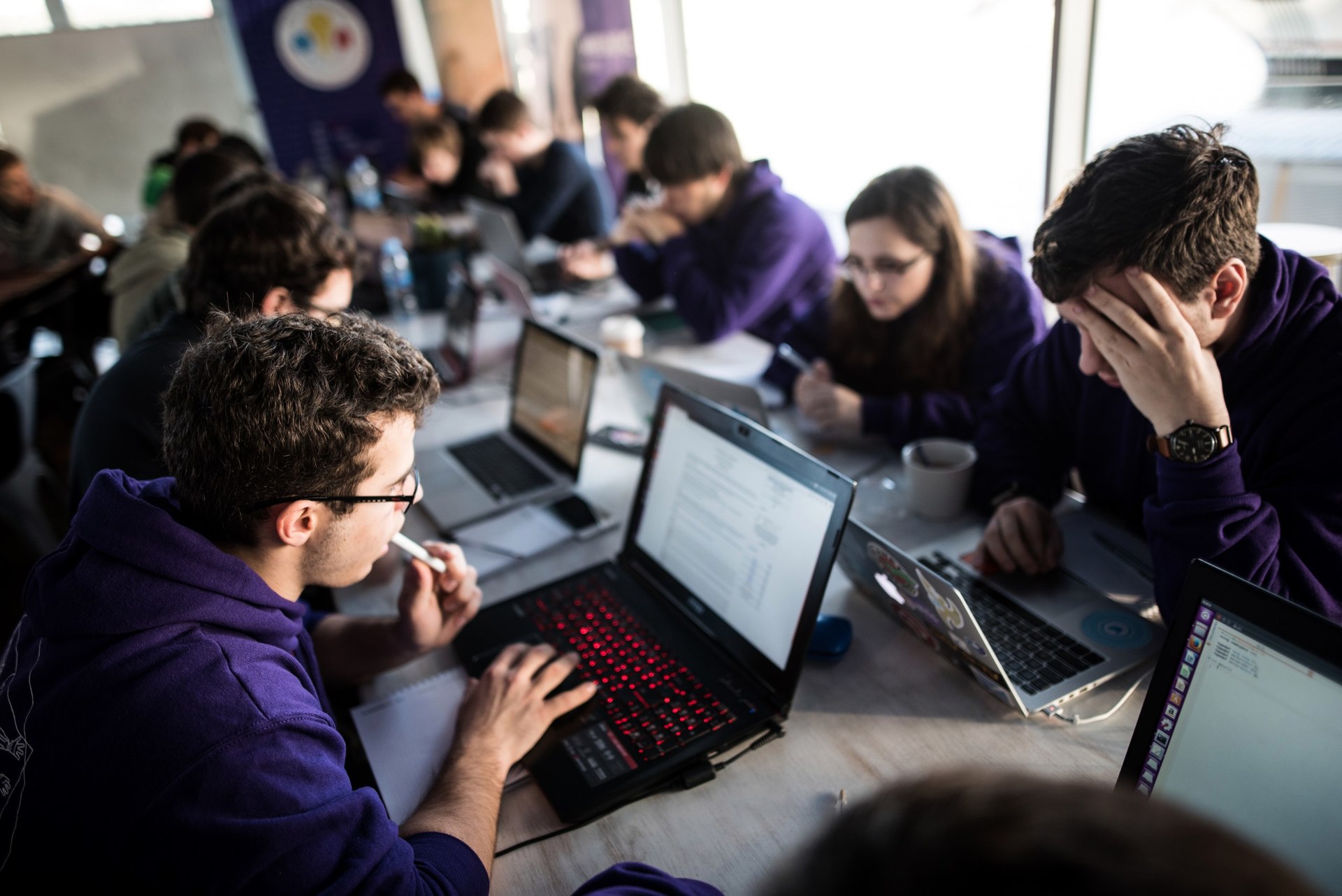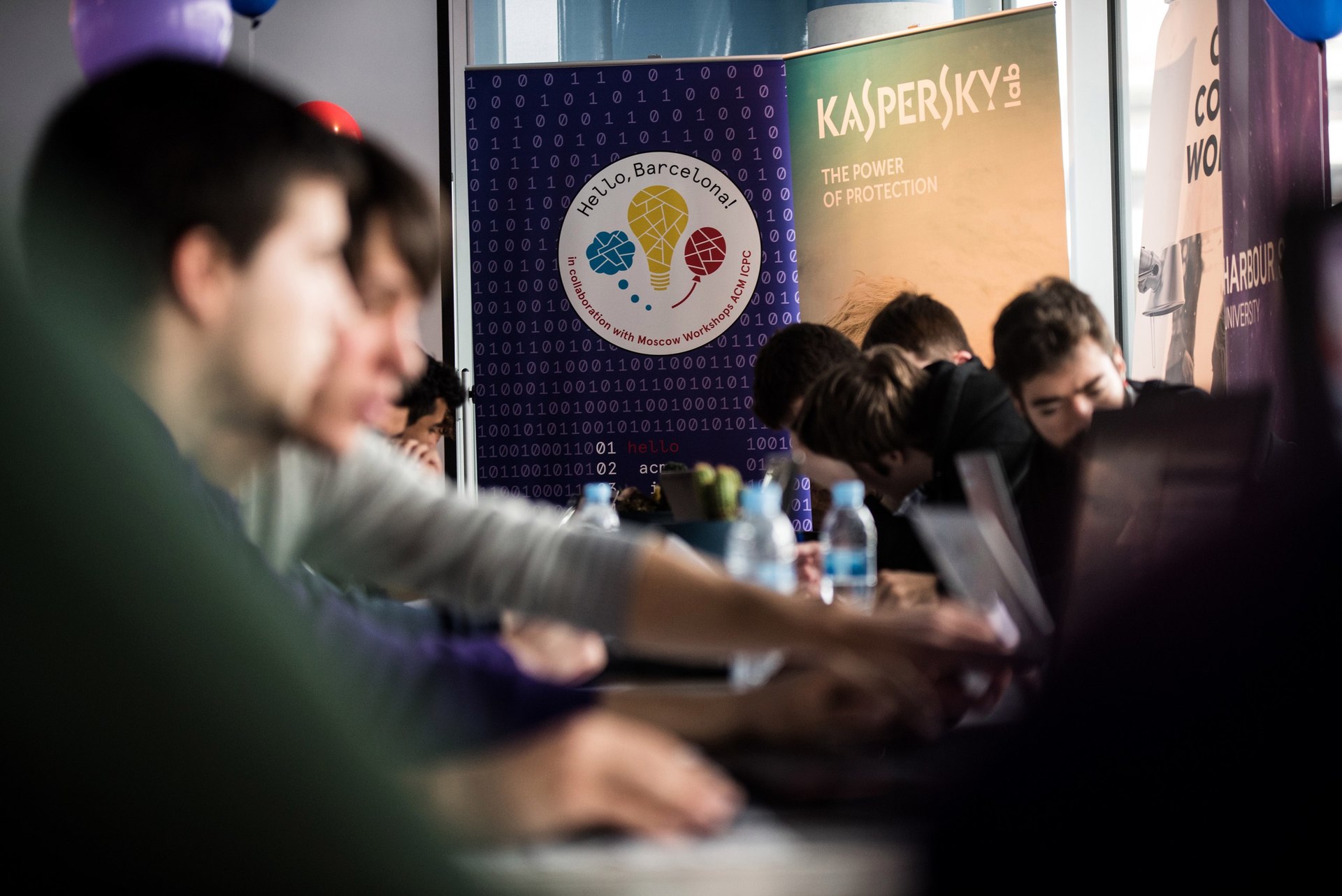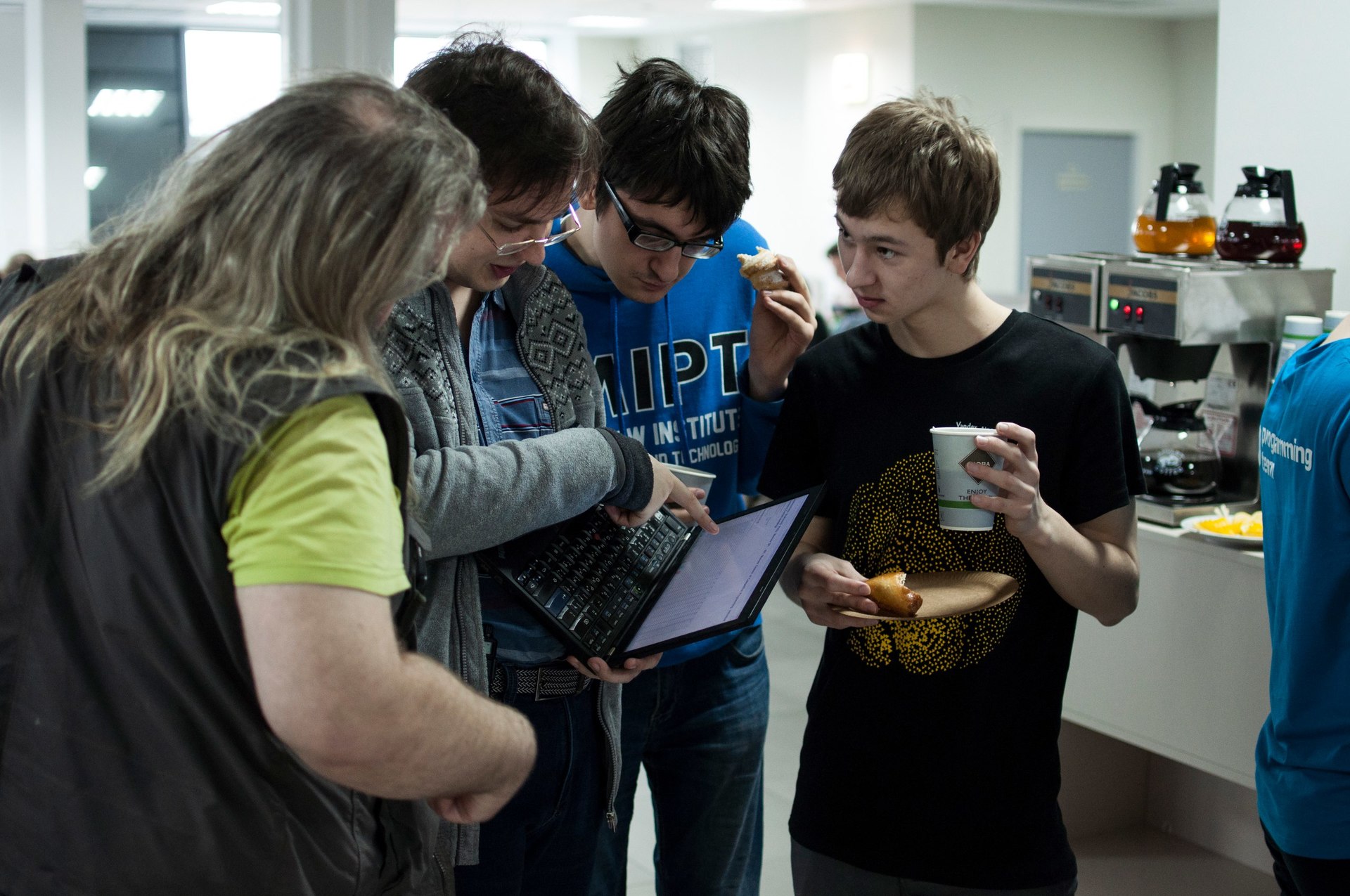Moscow Workshops ACM ICPC: how Fiztech created an international camp

If you look at the history of the ACM ICPC championship since 2000, when the guys from St. Petersburg State University won the first gold medal, 17 finals passed, and during this time 11 students became champions Russian students. Over the past 18 years, our teams won 28 gold medals, students from Europe - 14, China - 12, and the United States only 5. And, of course, the best coaches today are yesterday's winners, so the programs taught by graduates of Russian universities are popular all over the world. Alexey Maleev , the founder of Moscow Workshops ACM ICPC and director of the IT Education Development Center at MIPT , talks about sports programming at the Physics and Technology Institute and shares his experience in conducting international training.
The beginning of the way
About 5-7 years ago, Fiztech launched a new long history for itself - the field of Computer Science. At the same time, we naturally plunged into the environment of sports programming, because in a sense, championships are a confirmation of the quality of education. We began to conduct regular classes, where specific topics needed to solve the Olympiad problems were addressed.
On weekends, we started training and seminars. Training - Contests broad plan with tasks on various topics. At the seminars, the tasks were on specific topics where we conducted code review - our trainers and more experienced students reviewed the code manually. If it could be somehow optimized, then they wrote comments and asked the students to finalize it.
')
In this format, weekly classes were launched. But in sports programming it is very important to have practical experience. It's one thing when you solve problems in the comfort of your university, and another when you go to the championship: unfamiliar conditions, passions run high, more and more journalists come. At the finals you are generally filmed - there is a camera next to the computer, as well as spectators in the stands. These are completely different conditions to which you can adapt only through outbound competitions.
Training fees - a new stage of development
Training fees in the traditional format are from 8 to 12 days. At this time, all the other things go into the background: household and even study. The guys come to a new place where big contests are held every day, then lectures, analysis of tasks, and in the evening there is still a small contest for 2-3 hours. It turns out very intense intensive, thanks to which it is possible to achieve significant progress.
At first we started to carry out such fees only for our teams, then we decided to make them open. At first, Moscow universities close to us were invited and got the effect of improving quality. The competitive component and the motivation to perform well in such conditions increases, there is a cross-exchange of views in the inter-university environment.
The next step was open fees for all comers. True, the main working language was Russian at first, so guys from the Russian-speaking world came to us. In the summer of 2012, guys from Belarus and several cities of Russia came to us. So we launched the Moscow Workshops ACM ICPC project.
After receiving such an experience, we realized that it is possible to open up to the whole world. Made the working language English. Children from different countries of the former Soviet Union, Europe and even the USA began to come to us. Despite the fact that participation in such fees costs a certain amount of money (because full board and study program is included), many went to us - those who are truly motivated.
At the next stage, we decided to launch the exit camp: we found foreign partner universities that were able to organize the site, and brought the process organization methodology, lectures and tasks there. Last summer we tried such a scheme of work in Grodno, in western Belarus, and in February 2017 we went to an exit camp in Barcelona. 80 guys from very strong universities from 17 countries came to us. It was an extremely successful experience, and I am very grateful to our colleagues from Harbor Space University and the Polytechnic University of Catalonia, who organized this reception.

Recipe for success
Any teamwork involves a certain distribution of roles. And in all the teams that achieve high results, at least 1 or 2 out of three maths. A mathematician is a student who solves problems well. He is not required to be able to program well, maybe even to the keyboard he will not sit down for the competition, but he will determine how many strong tasks the team will solve, and what place it will occupy at the top of the table. In addition to mathematical training, of course, the efficiency of students and coaches is very important. Our guys are doing a lot. The teams that reach the final together have already solved about 1000 tasks. These are students who need to make a decision on junior courses: either they are doing it seriously and then there is a chance, or not serious, and then there is no chance. They are willing to take the risk, spend a lot of their time in student life, but this brings them the opposite result, because their career is developing very quickly and successfully. You do not need to be a finalist or even a semifinalist - participation in ¼ allows you to receive direct offers from companies. Many of these guys hunt at the preliminary stages of selection. In each company, there is often an internal selection procedure, and the guys from the ACM ICPC community pass these tests much easier and more successfully. And the finalists are guaranteed employment in almost any company in the world.
Real sector
The guys from the ACM ICPC community know their value. Sometimes small teams of graduates come together, and they launch new companies. Such a good example is the AIM Tech company in Moscow. Our graduate Renat Gumadeev Senior Quantitative Researcher of this company and our coach. He spends most of his time in business, but continues to meet with students and explain to them how to solve problems. The core of the development of "VKontakte" also formed from the ACM ICPC community graduates. And although they are already within the framework of a large structure, the internal mechanisms of interaction and product development are very close to what happened during the ACM training sessions.
Our graduates from this community really found themselves in life and quite successfully - they all got into interesting projects. They receive many offers, and those who have achieved certain heights receive offers from foreign companies. Many go to overseas internships, for example, on Facebook and Google. This practice allows you to expand the horizons and compare two companies - Russian and foreign, to see the difference from the inside. But among the Physicotechnical graduates of the ACM community, units are leaving to continue their careers abroad. Most remain in Moscow, despite the fact that they can live and work anywhere in the world.
Know our
It seems to me that the time spent and the amount of labor-intensiveness that the Russian students spent on training is having an effect. Even outwardly it is clear that our teams are more united. But it is quite difficult to rally such a small team. Even adjusting the inner atmosphere and companionship is not easy. Not so easy to survive the defeat, and the defeat is always a lot, and in order to achieve victory, you need to learn how to accept them.
The Physics and Technology Institute has 5 teams that could potentially reach the final. But the rules of the finale are such that only one of the best from the university goes. It turns out that 4 teams after the semi-finals are left behind and are preparing for the next season. This creates some internal competition between our teams at the same university. They have to wait at least a year, so there can be frustrations inside the team. Someone is ready to train for another year, but someone does not have enough patience. All this is really difficult, and the fact that the Russian teams achieve mutual understanding inside is an important factor and merit, first of all, of our coaches. The trainer with them is immersed in specific tasks, and in the tactics of the team, and examines errors with them, and simply builds relationships. This is a colossal work, perhaps imperceptible externally, but this is a huge number of hours devoted to working with these students.
Coaching and lecturing
At Fiztekh today 4 trainers. They have favorite teams that are assigned to them, but they all work with everyone. Inside the Physics and Technology Institute, we managed to create a mutually supportive community - new guys come, and graduates turn into mentor trainers.
Sometimes coaches with their teams come, sometimes not, but at all our training camps they can remotely monitor the solution of problems - we broadcast the screen of his students online. This is only available by login and password for a specific command. So the trainer can be located anywhere and follow the link to follow the decision online, then to analyze this work.

Lecturers at our training camp are the coaches and graduates of the ACM ICPC community from Russian universities. So, in Barcelona, we had Jacob Dlugach, our graduate, ACM ICPC 2012 gold medalist, now he lives and works in Zurich at Google. There was Egor Kulikov, a graduate of Moscow State University who worked at Devexperts in St. Petersburg, and now works at Devexperts in Munich. Mikhail Levin from Yandex, he lives in Moscow. Mikhail Tikhomirov, our coach, who works at Full-time Physics Institute. Mikhail Mirzayanov came from Saratov, and he also works at the university full-time. That is, these are people who now lead completely different lifestyles, live in different places and are involved in different industries, but it is always pleasant for them to come to give a lecture and share their experience with the younger generation.
Tasks for training
Tasks are the key position of any fees and the most difficult for the teaching staff, because there are a lot of tasks that need to be done, and each time it’s hard to collect so many original ones. We have established cooperation in the exchange of tasks in the world. For example, there is a contest in Japan and with us. We ask our foreign colleagues not to publish the solution for some time and share these tasks. Thus, both our students and the Japanese students solve two contests. We also have such connections with other countries, as well as with Russian universities: St. Petersburg State University, ITMO, Moscow State University, Saratov State University (Saratov State University), UrFU, and not only.
Often during gatherings, our students one day collect a contest, and then it is decided by students from all other universities. This is a very useful teaching experience, which gives a deeper understanding and develops a person. Since students spend a lot of time preparing and cannot even work in a company at a party time, they often work out writing tasks for a championship.
Oleg Khristenko, the chief judge of our training camps, collects tasks everywhere, wherever that goes. And, as a rule, all tasks are launched either at the Physics and Technical Center or at the open site Yandex.Contest. In the case of field fees, this is convenient - we don’t need to carry the server infrastructure with us, just access to the Internet is enough.
Present and future: are there alternative competitor fees?
Yes, there are regional camps. In Russia, good fees are held on the basis of Petrozavodsk State University with the participation of top Russian teams. But they are more focused on the Russian-speaking audience, and this limits them in the breadth of coverage of the countries that come to them. There is a very strong get-together in Brazil and very small camps for students of one university around the world.
Moscow Workshops is the first international global camp with the breadth number one, so there is practically nothing to compare with. Camp level was the highest in the world. How can this be assessed? Last year we held pre-finals ACM ICPC fees. Students participating in the training camp won 8 of 13 medals in the final. Of course, they went to this victory not one year, studied in different places and participated in different championships, but nevertheless they found our Moscow Workshops training useful for them. And this is again a unique indicator in the world, which suggests that the strongest teams come here.
If we abstract from programming, we also create new products in the global educational market. There was no such product as reinforced camps. Now, students from more than a hundred countries are already involved in it, and it is nice that these fees are Russian, both in terms of launch and content. In addition, we not only teach the global elite of student youth using our methods, but indirectly share our cultural Russian values. The guys come to our campus in Dolgoprudny, and on weekends we try to go to the Tretyakov Gallery, to the Kremlin, and to the Tchaikovsky Concert Hall. Yes, and just exchange views with each other.
Plans
In the near future we will make the announcement of the next camp, most likely, it will be in October. I really hope that it will be possible to launch a network of regional camps. It seems to us important to develop the potential of our Russian students, because there are far less qualified graduates today than job offers. The level of wages in IT is now quite high, above average. As a result, almost all strong guys from universities go to the industry and there are no people left who would work with the next generation. There is a gap between the mass quality of preparation and the requirements of the market. And this leads to the fact that the process is already fixated - not enough qualified graduates. And, of course, the regions suffer from this. Maybe even in large cities (Moscow, St. Petersburg, Yekaterinburg) the situation is better than in the regions - a number of graduates remain, and they become strong coaches and teachers. But human potential is distributed evenly throughout the country, and there are talented guys everywhere.
Spring Camp started on Monday. For the first time, guys from Australia, Brazil, Turkey, Belgium, Egypt, Hungary and a number of other countries came to us. Thus, it turns out that we have guys from Asia, Europe, North America, Australia and now also from Africa - these are already 4 continents. We also want to develop the network on different continents of the globe further than Barcelona. In such large regions as North America, Europe and South America there are a lot of talented guys, and there is an idea to run regional camps there, and the strongest will come to us, to Moscow, to the next level of competitions.
Source: https://habr.com/ru/post/326438/
All Articles